As the Khalistan movement has put a strain on India-Canada relations, it has also exposed a deep influence of the separatist ideology on the blingy Punjabi music industry.
While India and Canada continue to face off over the killing of Khalistani leader Hardeep Nijjar on Canadian soil, another person feeling a deep impact of the geopolitical row is popular Punjabi singer Shubh, caught in the crossfire between the two countries.
After Shubh shared certain posts on social media hinting at his alleged Khalistani ideology, along with a distorted map of India, prominent Indian celebrities unfollowed the singer on Instagram, brands withdrew their sponsorships, and his shows in India were cancelled.
Apart from being accused of glorifying gang culture and weapons, the Punjabi music industry has now been accused of being pro-Khalistan and anti-India, which has eventually led to the current downfall of Shubh.
The influence of the Khalistani movement on the Punjabi music industry was first felt in 1988, when popular singer Amar Singh Chamkila was assassinated by separatist leaders as they felt that his songs went against their ideology.
The rise of the Davinder Bambiha gang and the Lawrence Bishnoi gang saw a direct influence on Punjabi musicians, most of whom echoed the ideologies and words of the gangster Davinder Bambiha, a man affiliated with the Khalistan Tiger Force (KTF).
Punjab gang wars amid Khalistani movement
Lawrence Bishnoi recently took responsibility for the murder of a Khalistani leader in Canada. Bishnoi was also behind the murder of singer Sidhu Moosewala, a controversial figure who was allegedly associated with the pro-Khalistani Bambiha gang.
Bishnoi has been vehemently against the Khalistan movement, and has been targeting Khalistani supporters associated with the Bambiha gang. The killing of Sidhu Moosewala exposed the gang culture in Punjab, and also raises suspicion over his alleged Khalistani links.
Artists in the middle of Khalistan controversy
Sidhu Moosewala, through his songs, has been accused of glorifying Jarnail Singh Bhindranwale, a Sikh terrorist killed by the Indian government during Operation Blue Star. It was also speculated that the famous song ‘Daku’ by Inderpal Mogga and Channi Nattan is based on the life of Bhindranwale.
Sidhu Moosewala’s song ‘Punjab (Motherland)’ also opened with a scene with showed Bhindranwale walking with his followers in an old footage, showing the influence of the Khalistan movement on the music industry, trying to rectify past injustices against their community by inciting insurgency.
Apart from Shub, artists such as AP Dhillon, Parmish Verma, Karan Aujla and others have been involved in the crossfire of the Khalistan movement, as showing support for the ‘Elevated’ singer has brought them in the middle of the controversy.
While many believe that the reason for the influence of Khalistani leaders on Punjabi singers is foreign funding, power and foreign citizenships, no direct link between them or a prominent separatist leader has been established.
READ | Nijjar killing: 'Shared intelligence among Five Eyes' led to Trudeau's claim, says US diplomat
![submenu-img]() Manisha Koirala says she has only fallen for wrong men: 'There was a red flag every time but...'
Manisha Koirala says she has only fallen for wrong men: 'There was a red flag every time but...'![submenu-img]() Watch: MS Dhoni, Hardik Pandya dance with Salman Khan on 'Jumme ki raat' at Anant-Radhika's sangeet ceremony
Watch: MS Dhoni, Hardik Pandya dance with Salman Khan on 'Jumme ki raat' at Anant-Radhika's sangeet ceremony![submenu-img]() IND vs ZIM, 2nd T20I Dream11 prediction: Fantasy cricket tips for India vs Zimbabwe
IND vs ZIM, 2nd T20I Dream11 prediction: Fantasy cricket tips for India vs Zimbabwe![submenu-img]() Bigg Boss OTT 3: Anil Kapoor 'exposes' Sana Makbul's fake friendship with Naezy, says 'aap dosti ka tamasha...'
Bigg Boss OTT 3: Anil Kapoor 'exposes' Sana Makbul's fake friendship with Naezy, says 'aap dosti ka tamasha...'![submenu-img]() Alaviaa Jaaferi slammed for hugging Justin Bieber at Anant Ambani-Radhika Merchant's sangeet: 'He was so uncomfortable'
Alaviaa Jaaferi slammed for hugging Justin Bieber at Anant Ambani-Radhika Merchant's sangeet: 'He was so uncomfortable'![submenu-img]() Meet IAS officer, who did BTech, MBA, MA, comes from a family of civil servants, cracked UPSC exam, secured AIR...
Meet IAS officer, who did BTech, MBA, MA, comes from a family of civil servants, cracked UPSC exam, secured AIR...![submenu-img]() Meet Indian genius who cracked ITT-JEE, NEET entrance exam but did not take admission due to...
Meet Indian genius who cracked ITT-JEE, NEET entrance exam but did not take admission due to...![submenu-img]() NEET UG 2024 counselling postponed until further notice amid paper leak row: Report
NEET UG 2024 counselling postponed until further notice amid paper leak row: Report![submenu-img]() FMGE June 2024: Exam to be held today, NBEMS issues exam-day instructions
FMGE June 2024: Exam to be held today, NBEMS issues exam-day instructions![submenu-img]() Meet IAS officer, who fought against corruption, was shot six times, lost an eye, he is...
Meet IAS officer, who fought against corruption, was shot six times, lost an eye, he is...![submenu-img]() Hathras Stampede Case: STF Arrests Bhole Baba's Servant Ramladait
Hathras Stampede Case: STF Arrests Bhole Baba's Servant Ramladait![submenu-img]() BSP Tamil Nadu Chief K Armstrong Hacked To Death: 8 Suspects Arrested In Chennai
BSP Tamil Nadu Chief K Armstrong Hacked To Death: 8 Suspects Arrested In Chennai![submenu-img]() Days After Hathras Stampede Tragedy, An On-Camera Statement From Bhole Baba, Says 'Deeply Saddened…'
Days After Hathras Stampede Tragedy, An On-Camera Statement From Bhole Baba, Says 'Deeply Saddened…'![submenu-img]() UK PM Rishi Sunak Resigns, Concedes Defeat To Keir Starmer In UK Polls As Labour Wins Over 300 Seats
UK PM Rishi Sunak Resigns, Concedes Defeat To Keir Starmer In UK Polls As Labour Wins Over 300 Seats![submenu-img]() Rahul Gandhi Meets The Victims Of Hathras Stampede, Assures Full Support From Congress
Rahul Gandhi Meets The Victims Of Hathras Stampede, Assures Full Support From Congress![submenu-img]() DNA Verified: Did Kangana Ranaut party with gangster Abu Salem? Actress reveals who's with her in viral photo
DNA Verified: Did Kangana Ranaut party with gangster Abu Salem? Actress reveals who's with her in viral photo![submenu-img]() DNA Verified: New Delhi Railway Station to be closed for 4 years? Know the truth here
DNA Verified: New Delhi Railway Station to be closed for 4 years? Know the truth here![submenu-img]() DNA Verified: Did RSS chief Mohan Bhagwat praise Congress during Lok Sabha Elections 2024? Know the truth here
DNA Verified: Did RSS chief Mohan Bhagwat praise Congress during Lok Sabha Elections 2024? Know the truth here![submenu-img]() DNA Verified: Is CAA an anti-Muslim law? Centre terms news report as 'misleading'
DNA Verified: Is CAA an anti-Muslim law? Centre terms news report as 'misleading'![submenu-img]() DNA Verified: Lok Sabha Elections 2024 to be held on April 19? Know truth behind viral message
DNA Verified: Lok Sabha Elections 2024 to be held on April 19? Know truth behind viral message![submenu-img]() Streaming This Week: Mirzapur season 3, Srikanth, Garudan, latest OTT releases to binge-watch
Streaming This Week: Mirzapur season 3, Srikanth, Garudan, latest OTT releases to binge-watch![submenu-img]() Remember Parzaan Dastur? Cute Sikh kid from Shah Rukh Khan's Kuch Kuch Hota Hai, 'Jalebi boy', who now works as...
Remember Parzaan Dastur? Cute Sikh kid from Shah Rukh Khan's Kuch Kuch Hota Hai, 'Jalebi boy', who now works as...![submenu-img]() Meet Andy Long, Kalki 2898 AD's action director, who has worked with Ajay Devgn, Vidyut Jammwal; he is Jackie Chan's...
Meet Andy Long, Kalki 2898 AD's action director, who has worked with Ajay Devgn, Vidyut Jammwal; he is Jackie Chan's...![submenu-img]() Kamal Haasan's Indian 2 gets U/A certificate, CBFC asks these 5 changes, including replacement of...
Kamal Haasan's Indian 2 gets U/A certificate, CBFC asks these 5 changes, including replacement of...![submenu-img]() In pics: Team India's T20 World Cup victory parade in Mumbai
In pics: Team India's T20 World Cup victory parade in Mumbai![submenu-img]() Hathras stampede: Main accused Devprakash Madhukar sent to 14-day judicial custody, police say he was...
Hathras stampede: Main accused Devprakash Madhukar sent to 14-day judicial custody, police say he was...![submenu-img]() PM Modi speaks with new UK PM Starmer, invites him to India, agree to work for early conclusion of...
PM Modi speaks with new UK PM Starmer, invites him to India, agree to work for early conclusion of...![submenu-img]() Muharram 2024: Date, history, significance of the Islamic New Year
Muharram 2024: Date, history, significance of the Islamic New Year![submenu-img]() Gujarat: Six-storey building collapses in Surat, many feared trapped
Gujarat: Six-storey building collapses in Surat, many feared trapped![submenu-img]() Anant Ambani-Radhika Merchant wedding: Mumbai police issues traffic restrictions; key routes to avoid
Anant Ambani-Radhika Merchant wedding: Mumbai police issues traffic restrictions; key routes to avoid![submenu-img]() Lok Sabha Speaker's Election: What does the Constitution say?
Lok Sabha Speaker's Election: What does the Constitution say?![submenu-img]() Explained: Why is Kerala demanding to change its name to Keralam?
Explained: Why is Kerala demanding to change its name to Keralam?![submenu-img]() DNA Explainer: What is Kafala system that is prevalent in gulf countries? Why is it considered extremely brutal?
DNA Explainer: What is Kafala system that is prevalent in gulf countries? Why is it considered extremely brutal? ![submenu-img]() Lok Sabha Elections 2024: What are exit polls? When and how are they conducted?
Lok Sabha Elections 2024: What are exit polls? When and how are they conducted?![submenu-img]() DNA Explainer: Why was Iranian president Ebrahim Raisi seen as possible successor to Ayatollah Khamenei?
DNA Explainer: Why was Iranian president Ebrahim Raisi seen as possible successor to Ayatollah Khamenei?![submenu-img]() Manisha Koirala says she has only fallen for wrong men: 'There was a red flag every time but...'
Manisha Koirala says she has only fallen for wrong men: 'There was a red flag every time but...'![submenu-img]() Bigg Boss OTT 3: Anil Kapoor 'exposes' Sana Makbul's fake friendship with Naezy, says 'aap dosti ka tamasha...'
Bigg Boss OTT 3: Anil Kapoor 'exposes' Sana Makbul's fake friendship with Naezy, says 'aap dosti ka tamasha...'![submenu-img]() Alaviaa Jaaferi slammed for hugging Justin Bieber at Anant Ambani-Radhika Merchant's sangeet: 'He was so uncomfortable'
Alaviaa Jaaferi slammed for hugging Justin Bieber at Anant Ambani-Radhika Merchant's sangeet: 'He was so uncomfortable'![submenu-img]() Meet star kid whose father sold property, mother sold jewellery, was bullied in childhood, is now worth Rs 1800 crore
Meet star kid whose father sold property, mother sold jewellery, was bullied in childhood, is now worth Rs 1800 crore![submenu-img]() Ryan Reynolds wants to work with this 'amazing' Bollywood star, tells Hugh Jackman 'he will make you look like...'
Ryan Reynolds wants to work with this 'amazing' Bollywood star, tells Hugh Jackman 'he will make you look like...'![submenu-img]() World's largest elevator, lotus ballroom: Inside details of grand venue of Anant Ambani-Radhika wedding
World's largest elevator, lotus ballroom: Inside details of grand venue of Anant Ambani-Radhika wedding![submenu-img]() Viral video: Woman tries to pose with a tiger, what happens next will shock you
Viral video: Woman tries to pose with a tiger, what happens next will shock you![submenu-img]() In pics: Isha Ambani creates fashion history, wears first ever custom Schiaparelli saree to Anant-Radhika's sangeet
In pics: Isha Ambani creates fashion history, wears first ever custom Schiaparelli saree to Anant-Radhika's sangeet![submenu-img]() Man uses alligator to open beer can in viral video, internet is shocked
Man uses alligator to open beer can in viral video, internet is shocked![submenu-img]() Snake bites man in Bihar, he bites it back twice, guess who survived
Snake bites man in Bihar, he bites it back twice, guess who survived
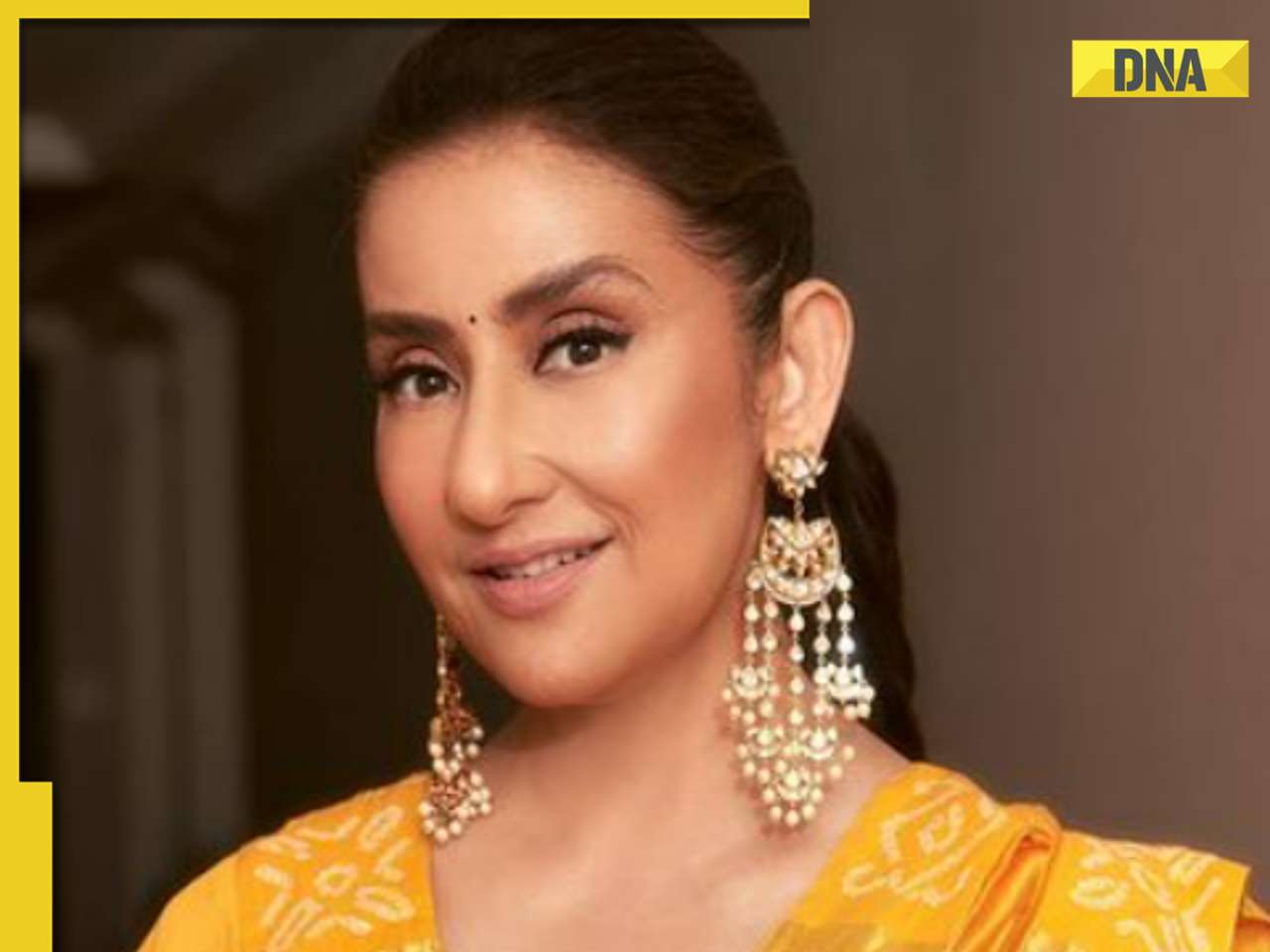

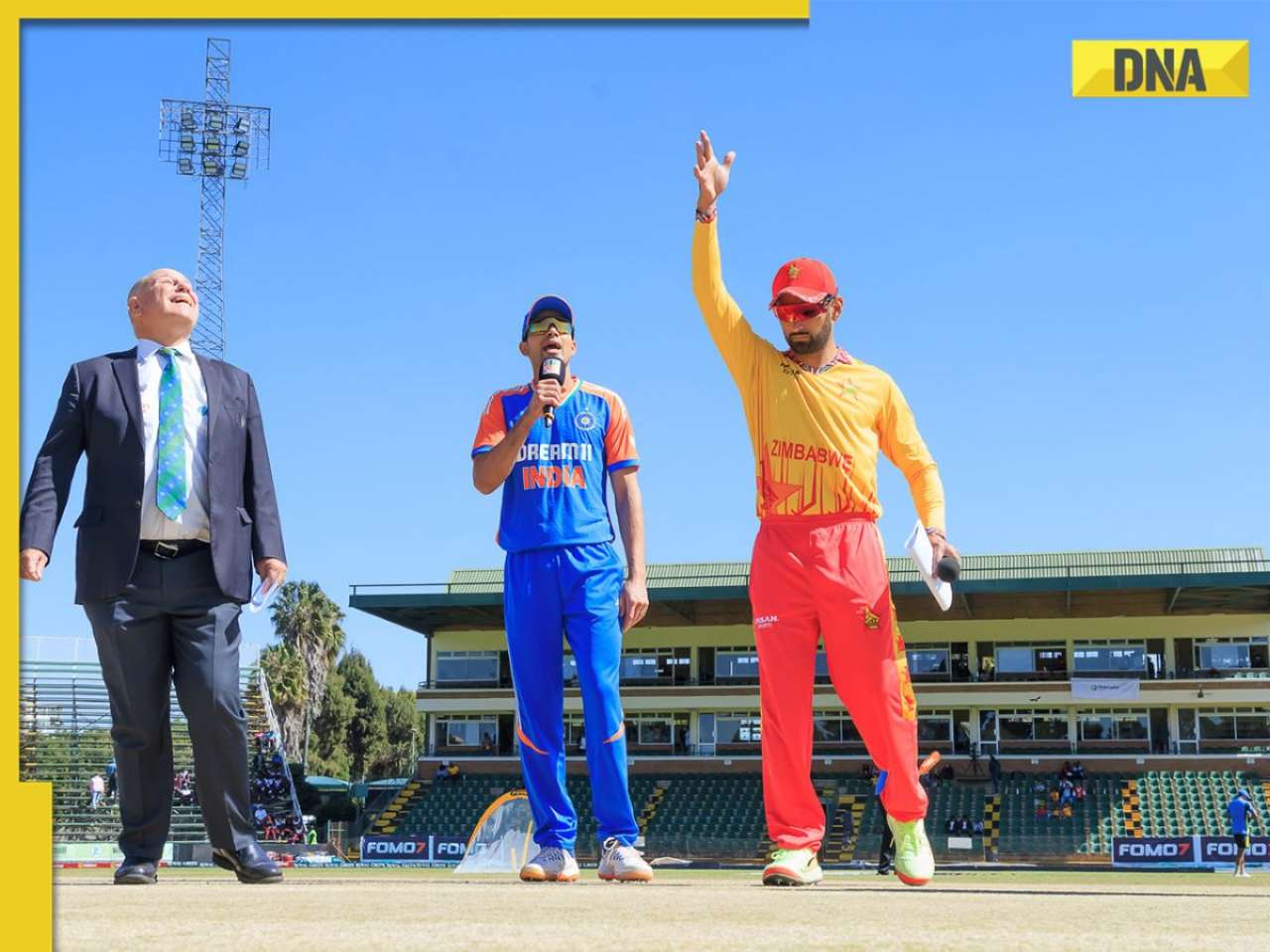
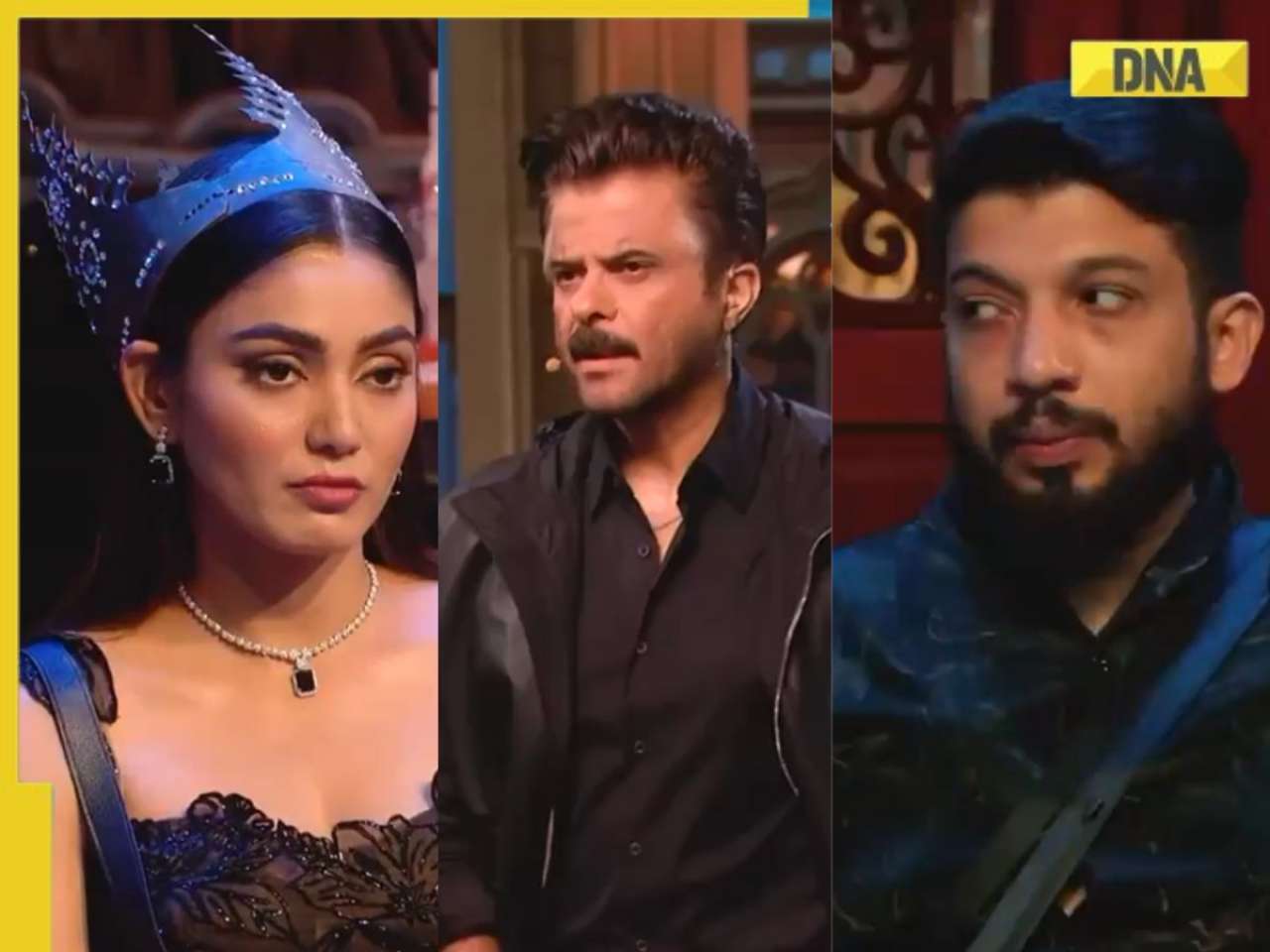
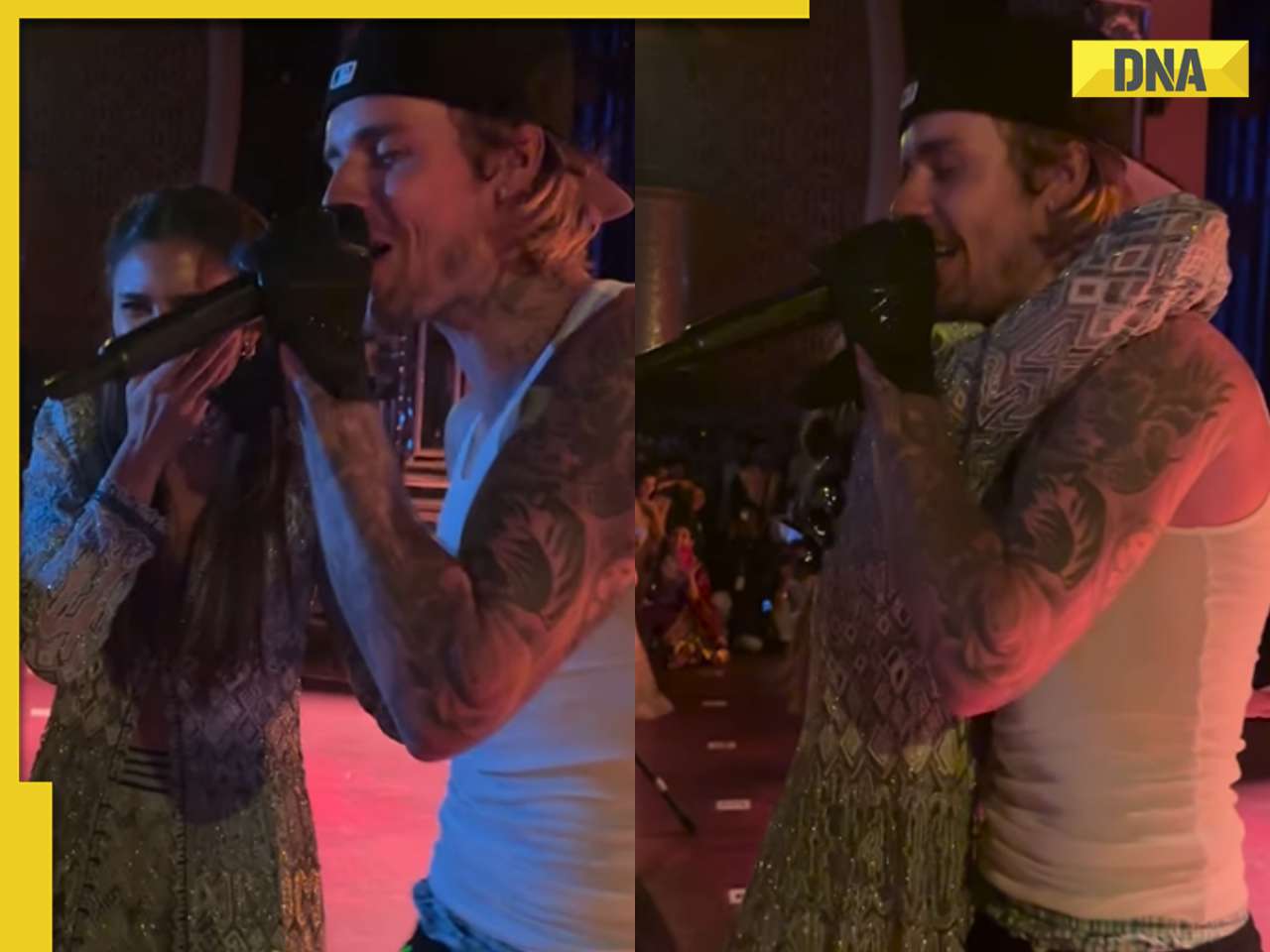







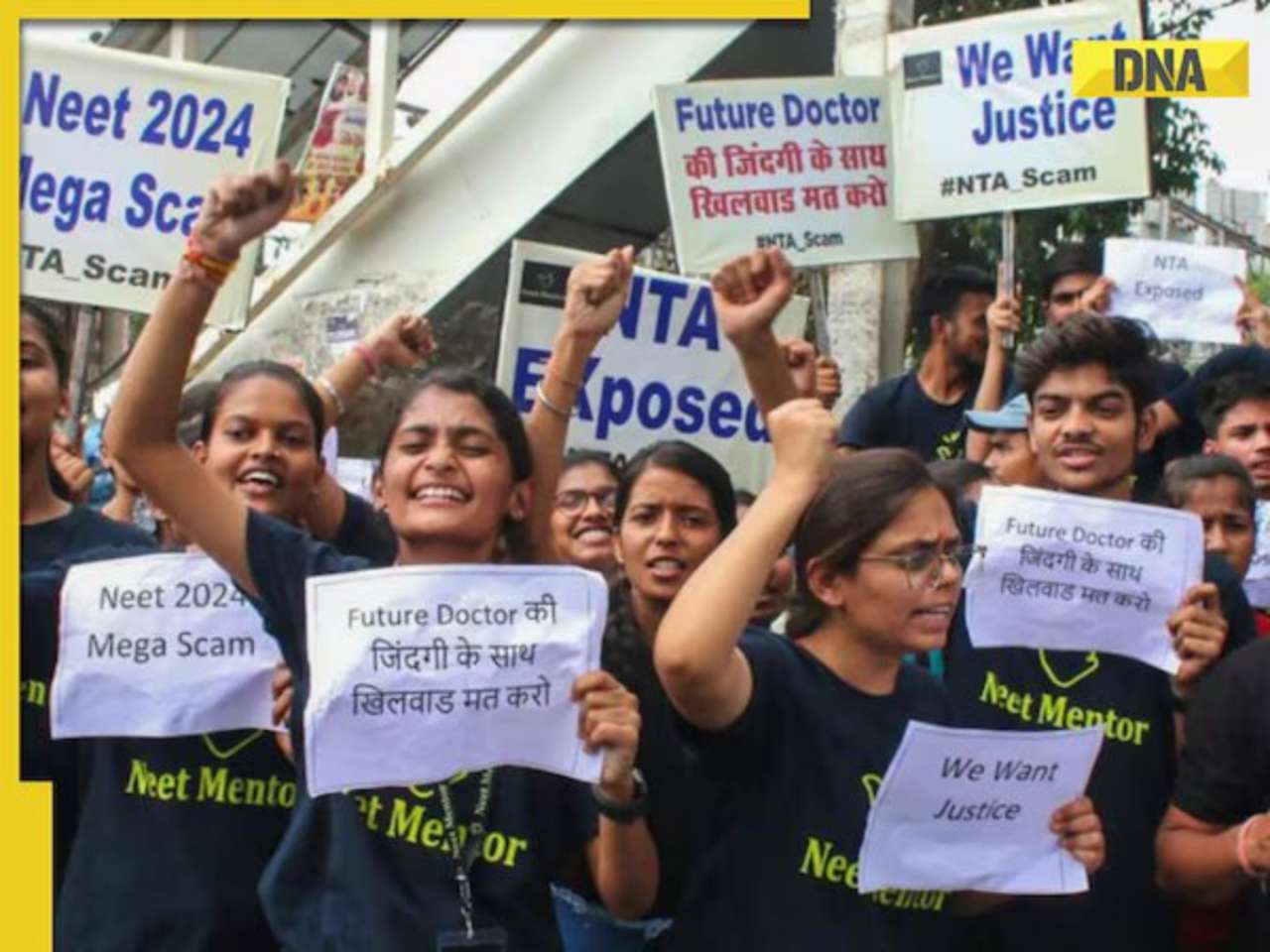

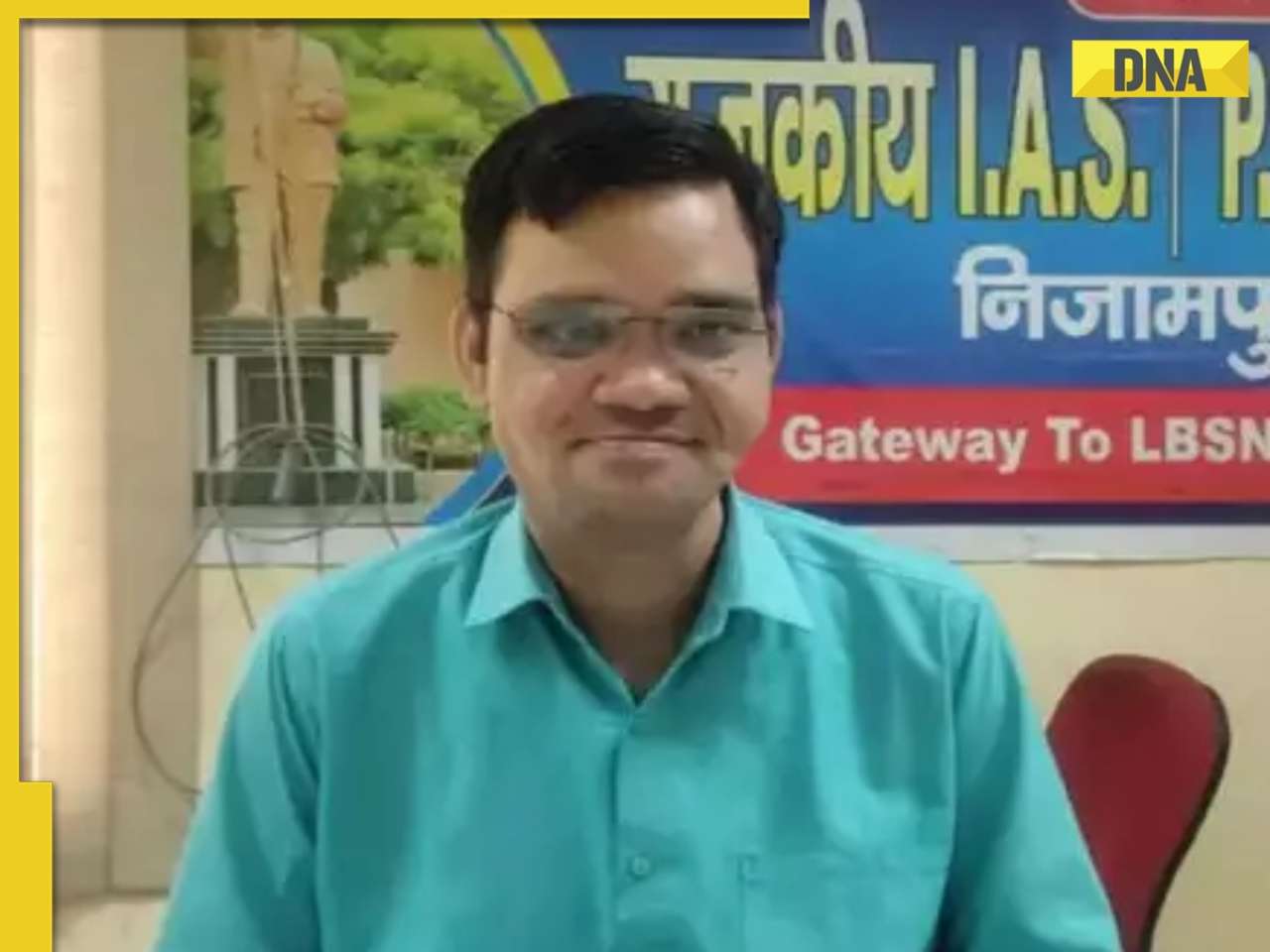
















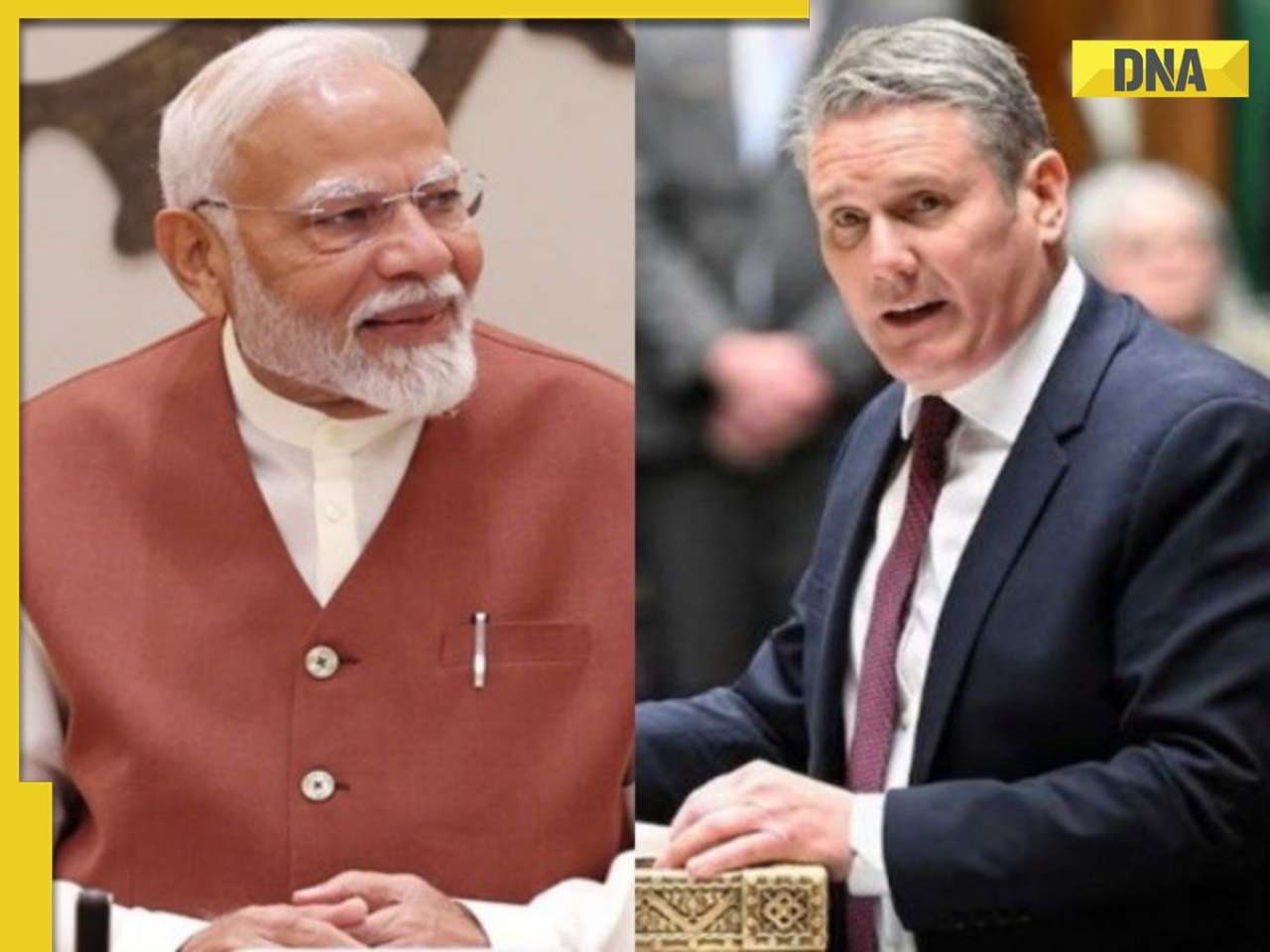
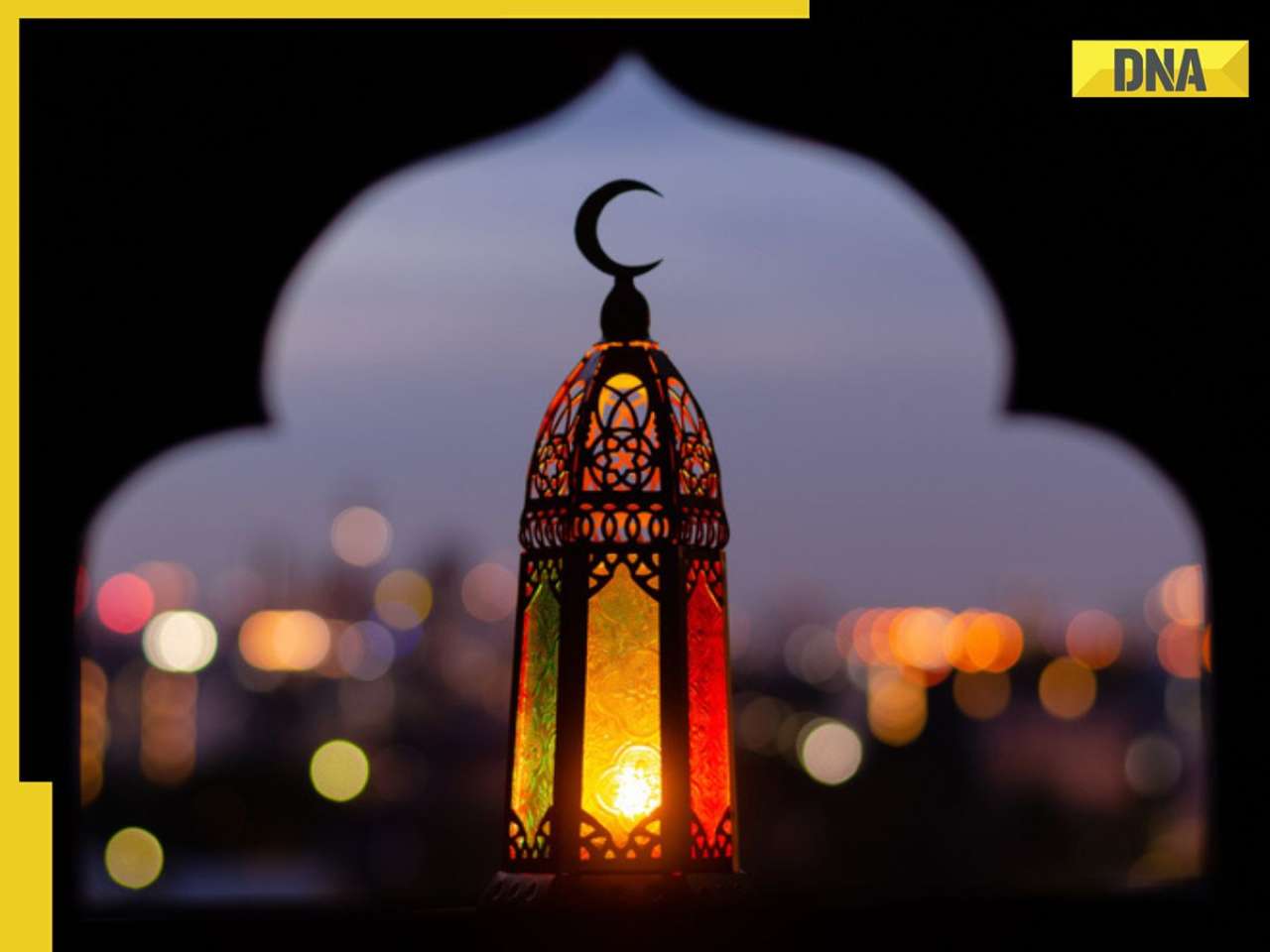


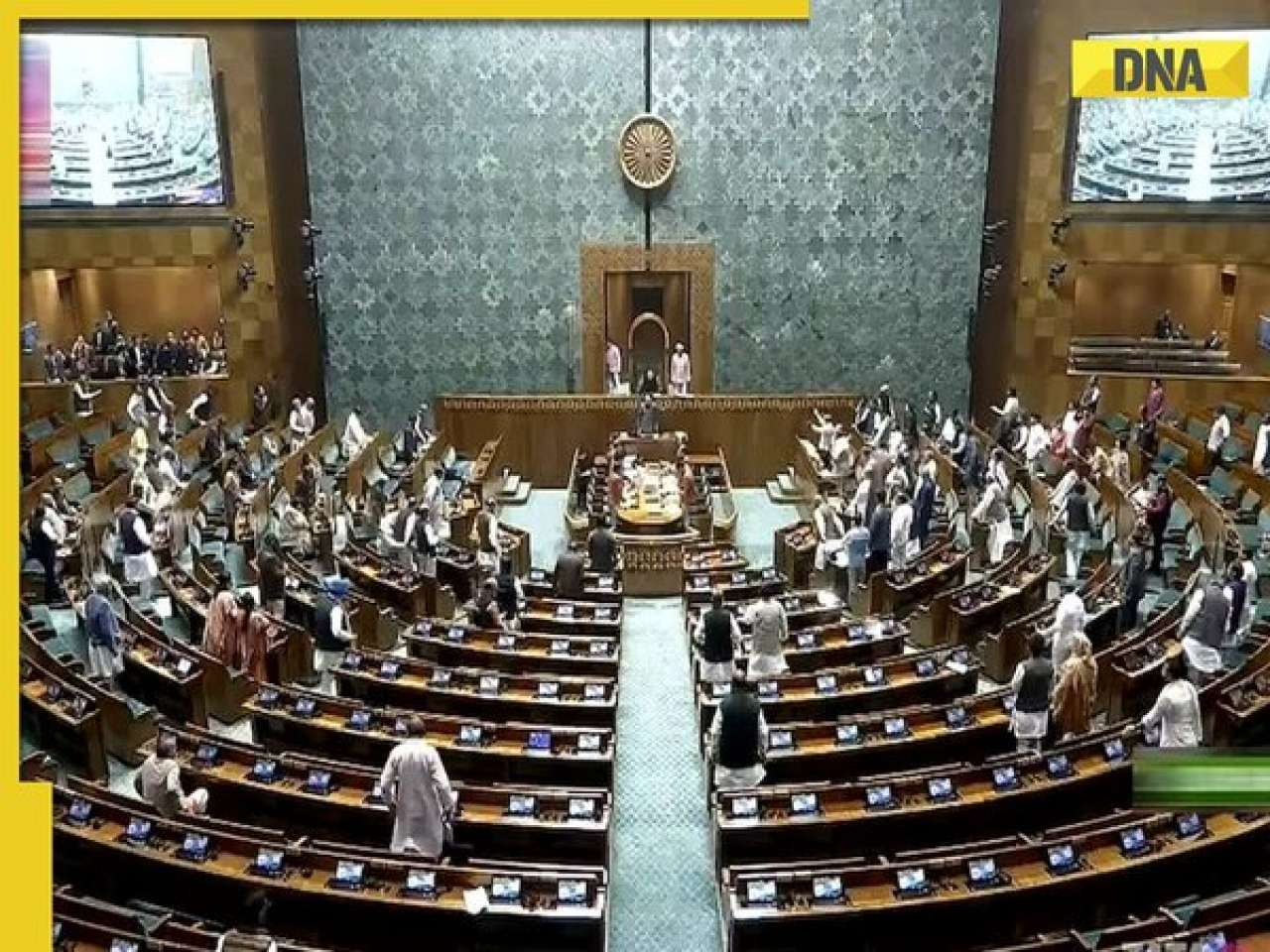
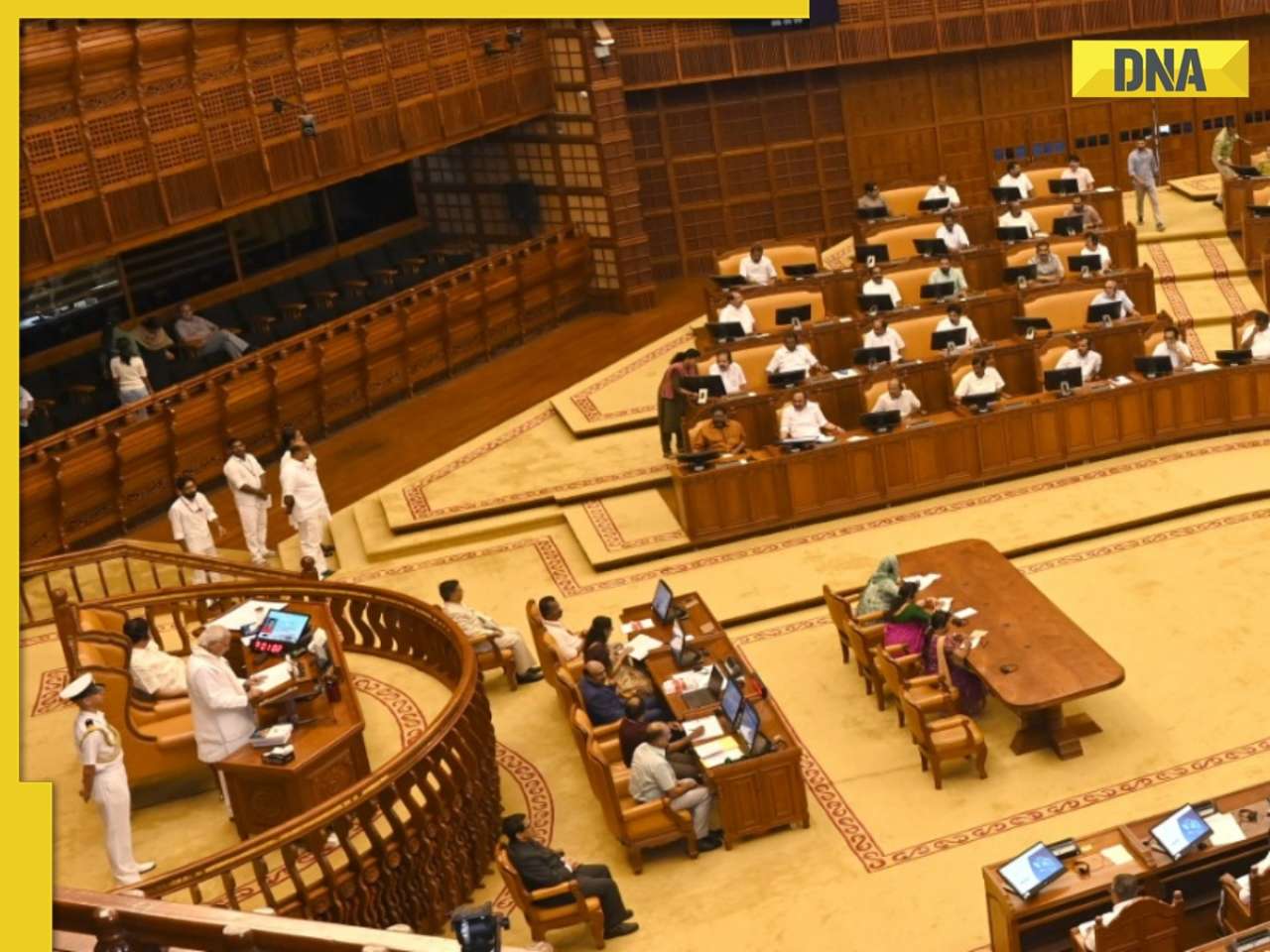



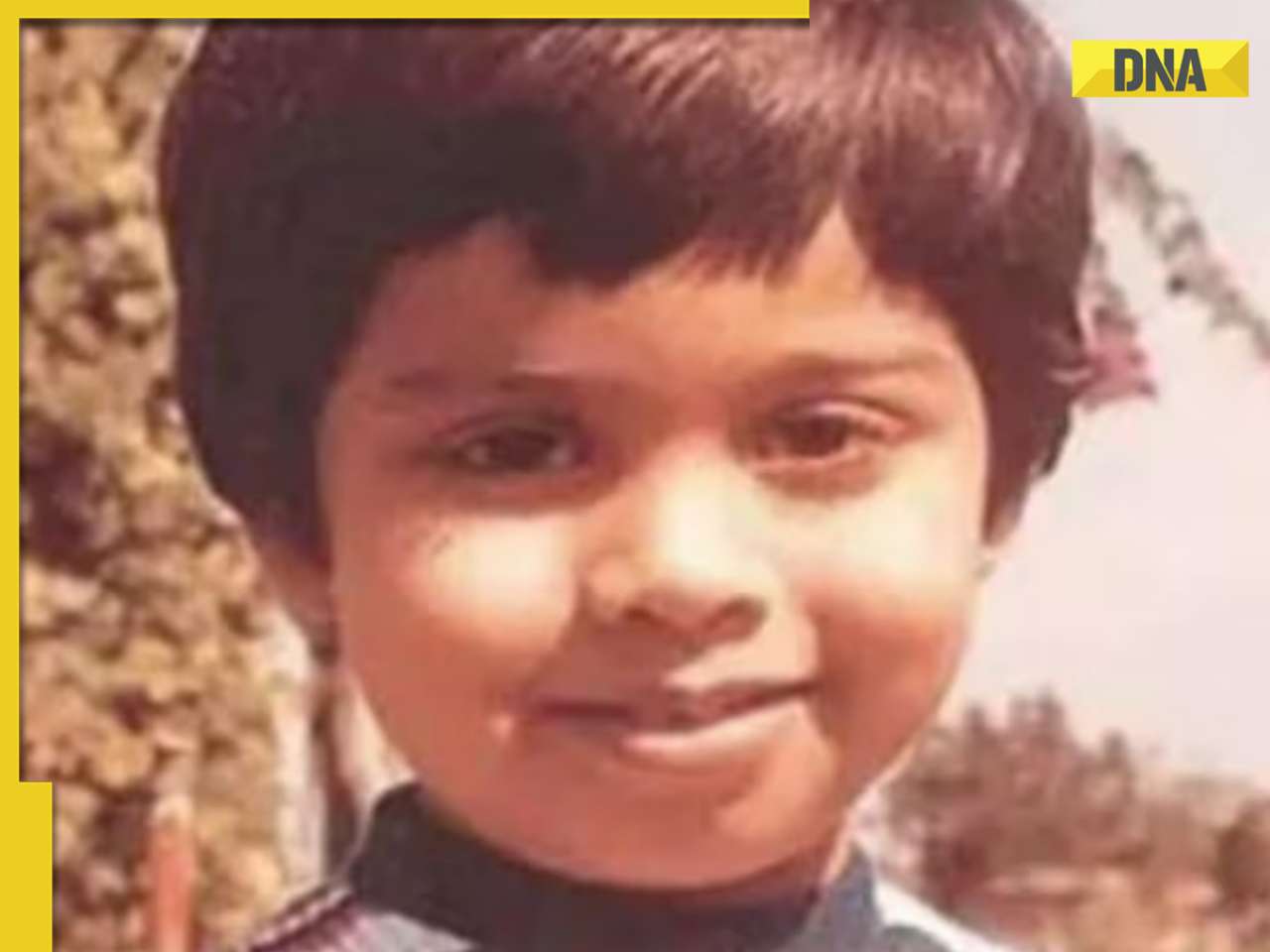

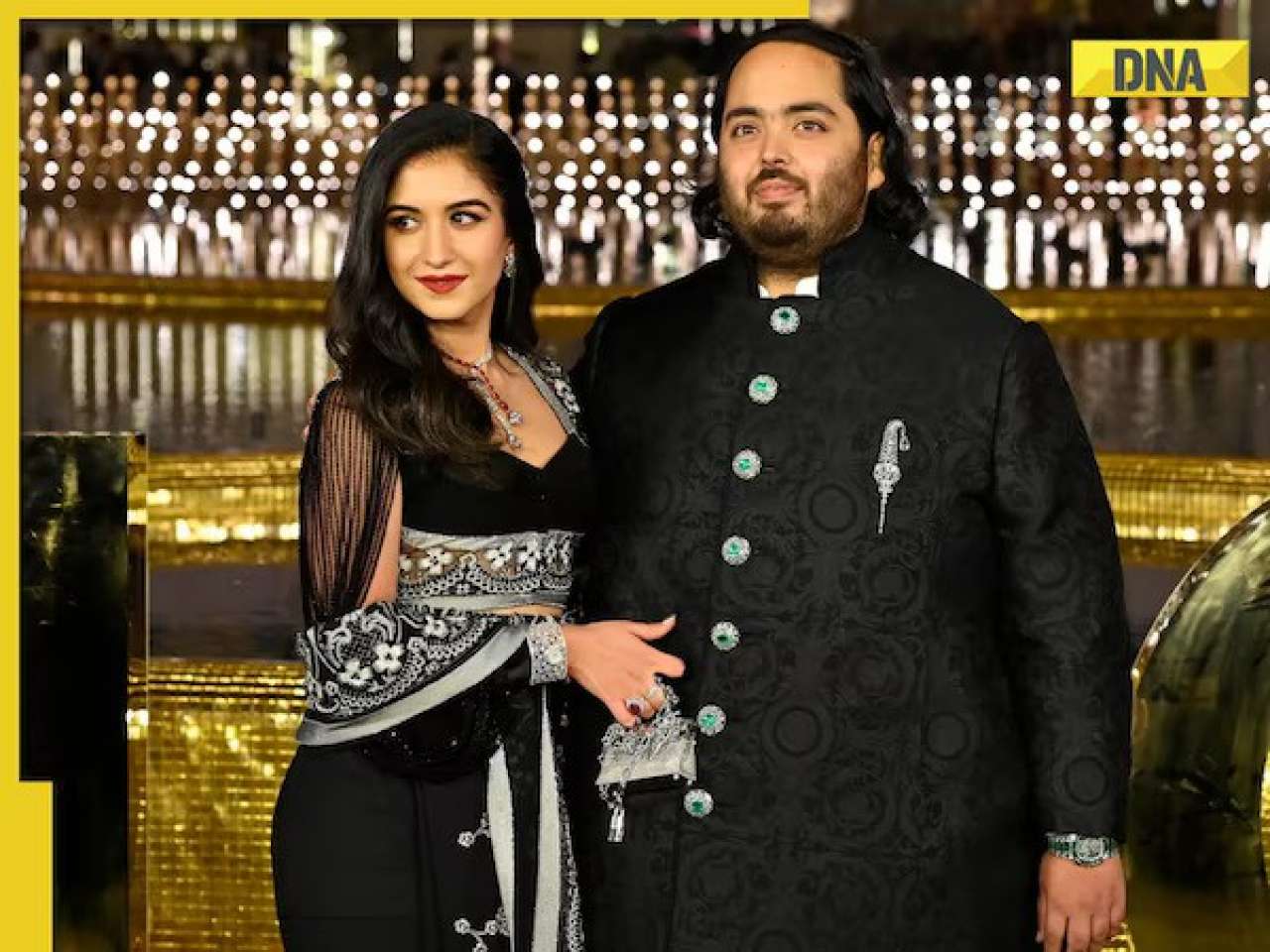



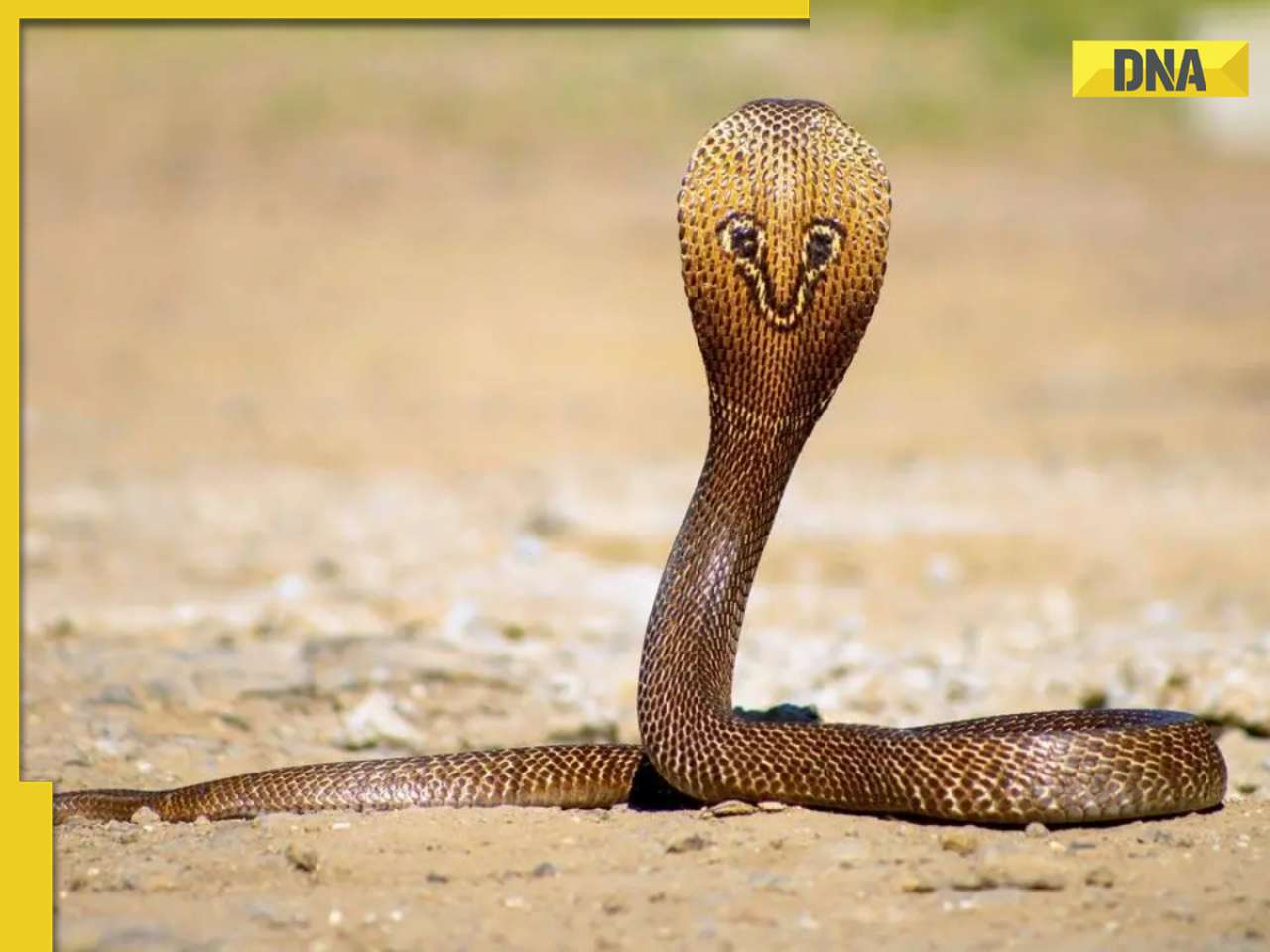

)

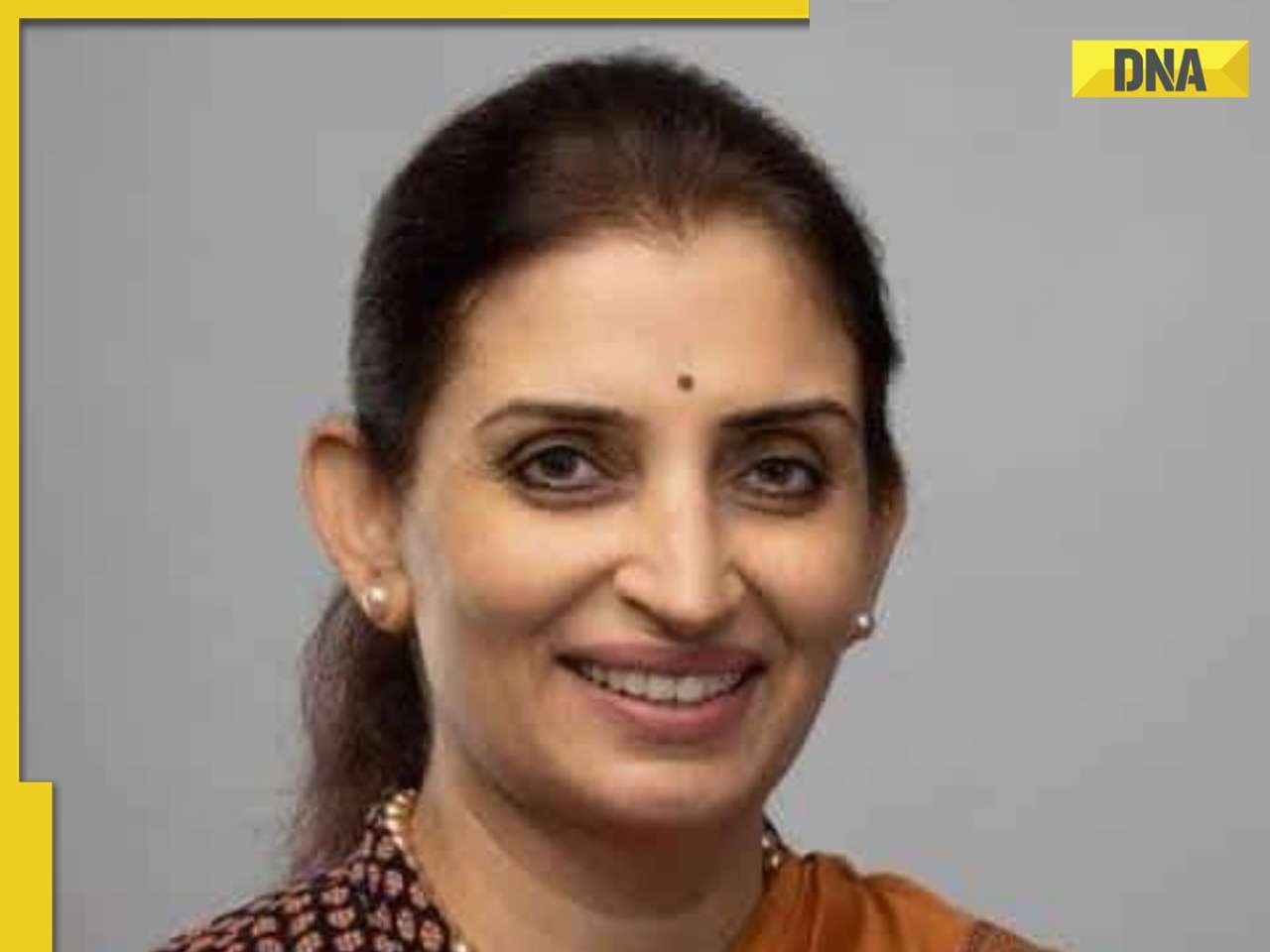
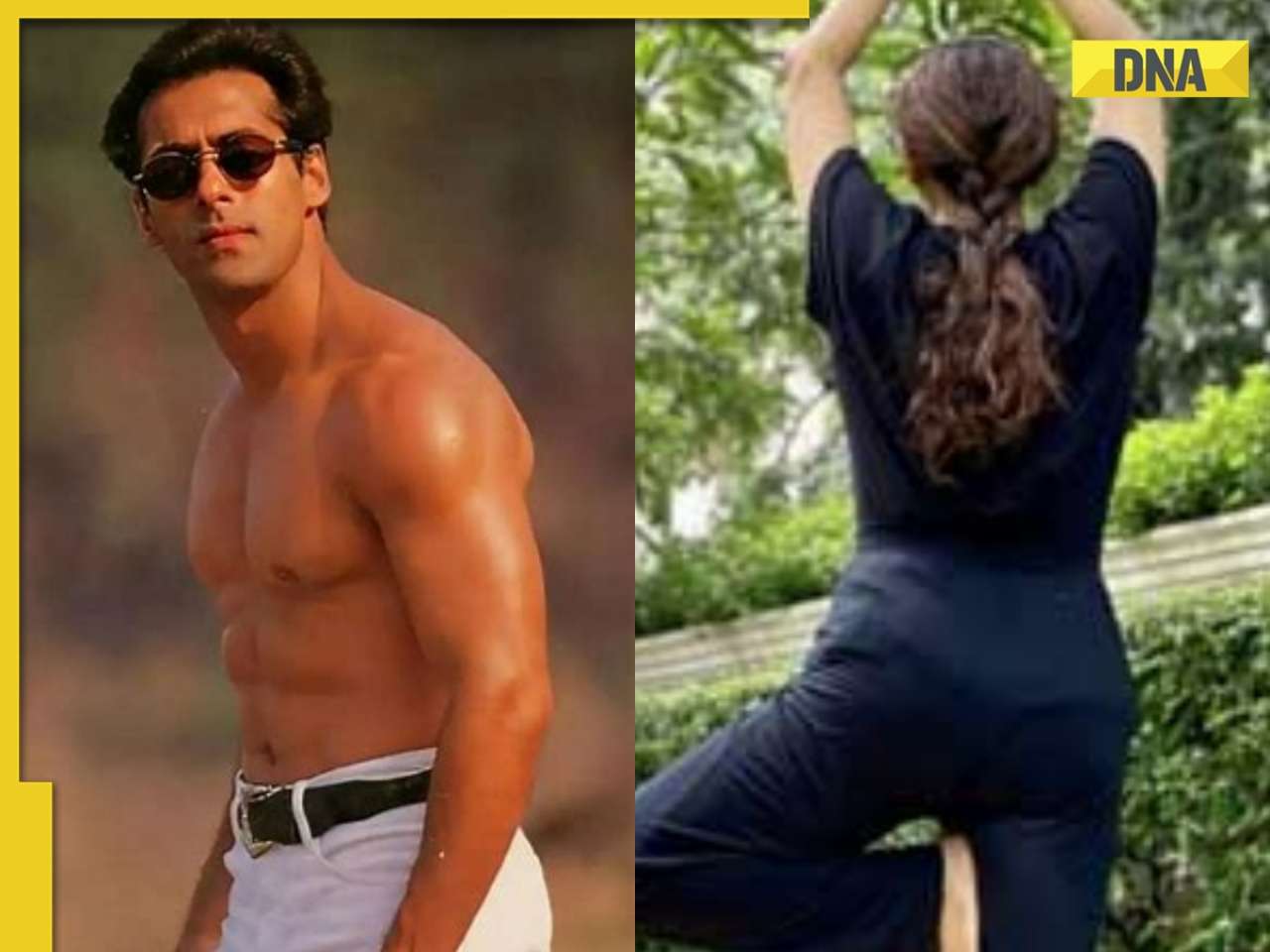
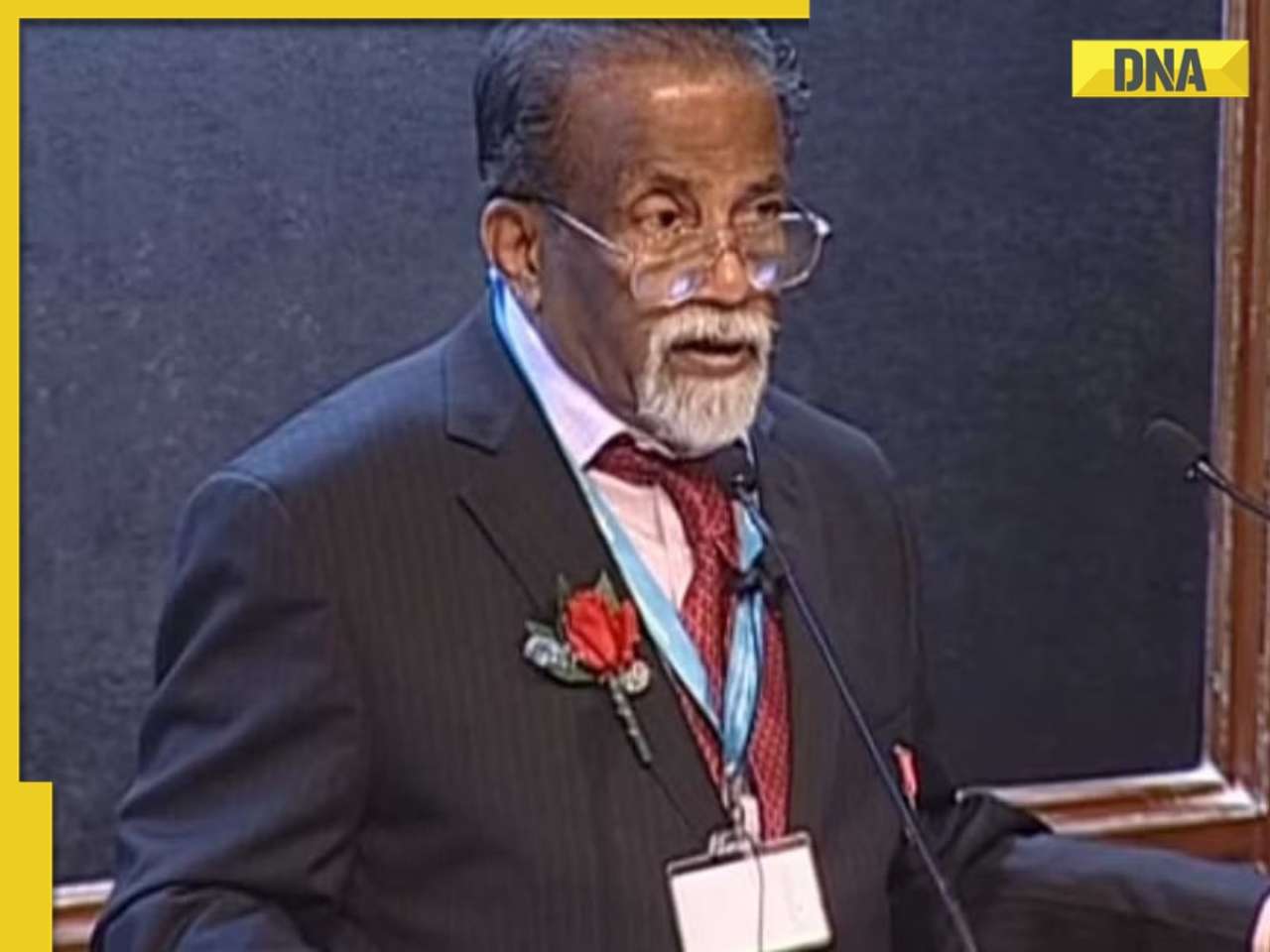
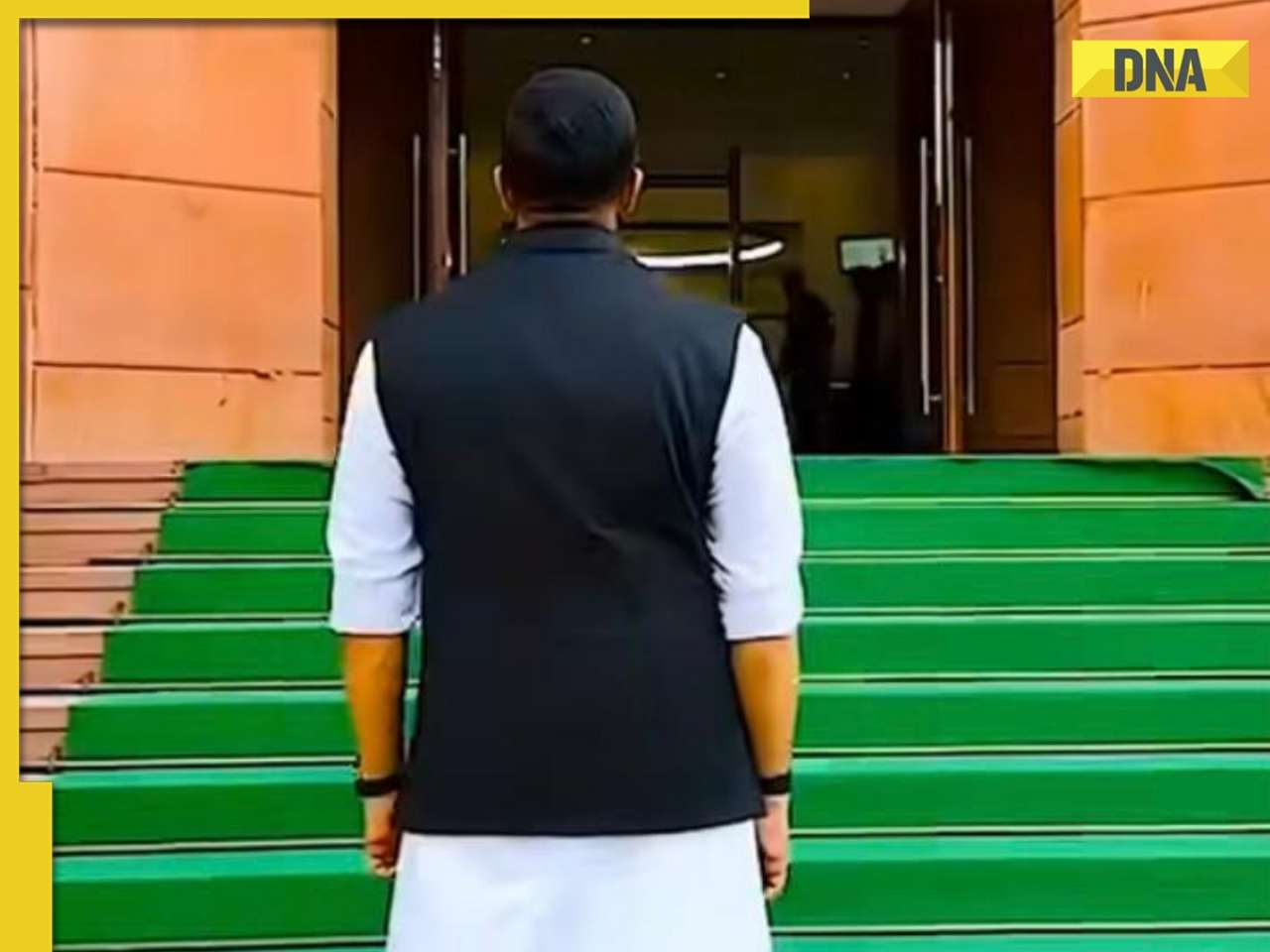

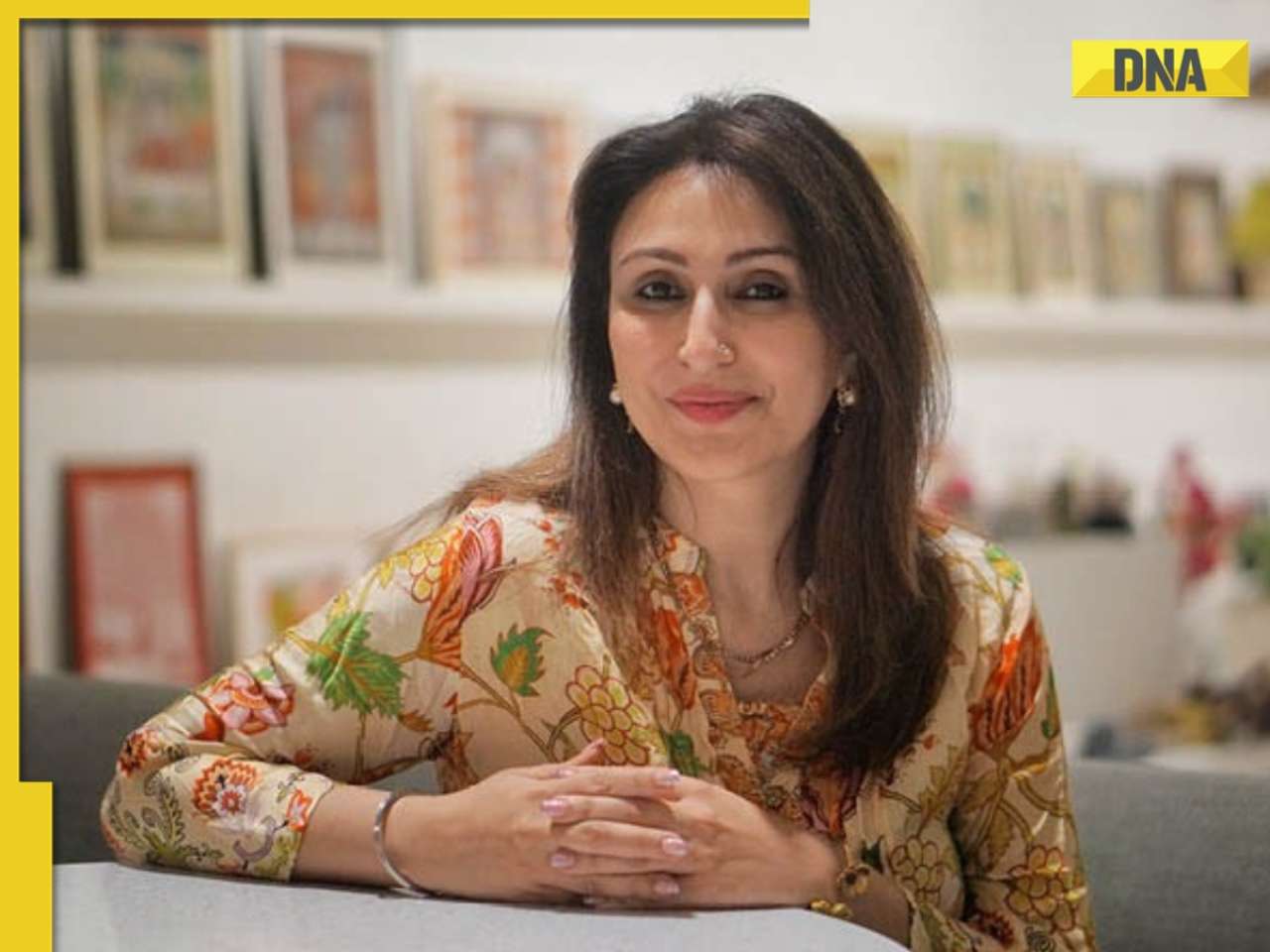
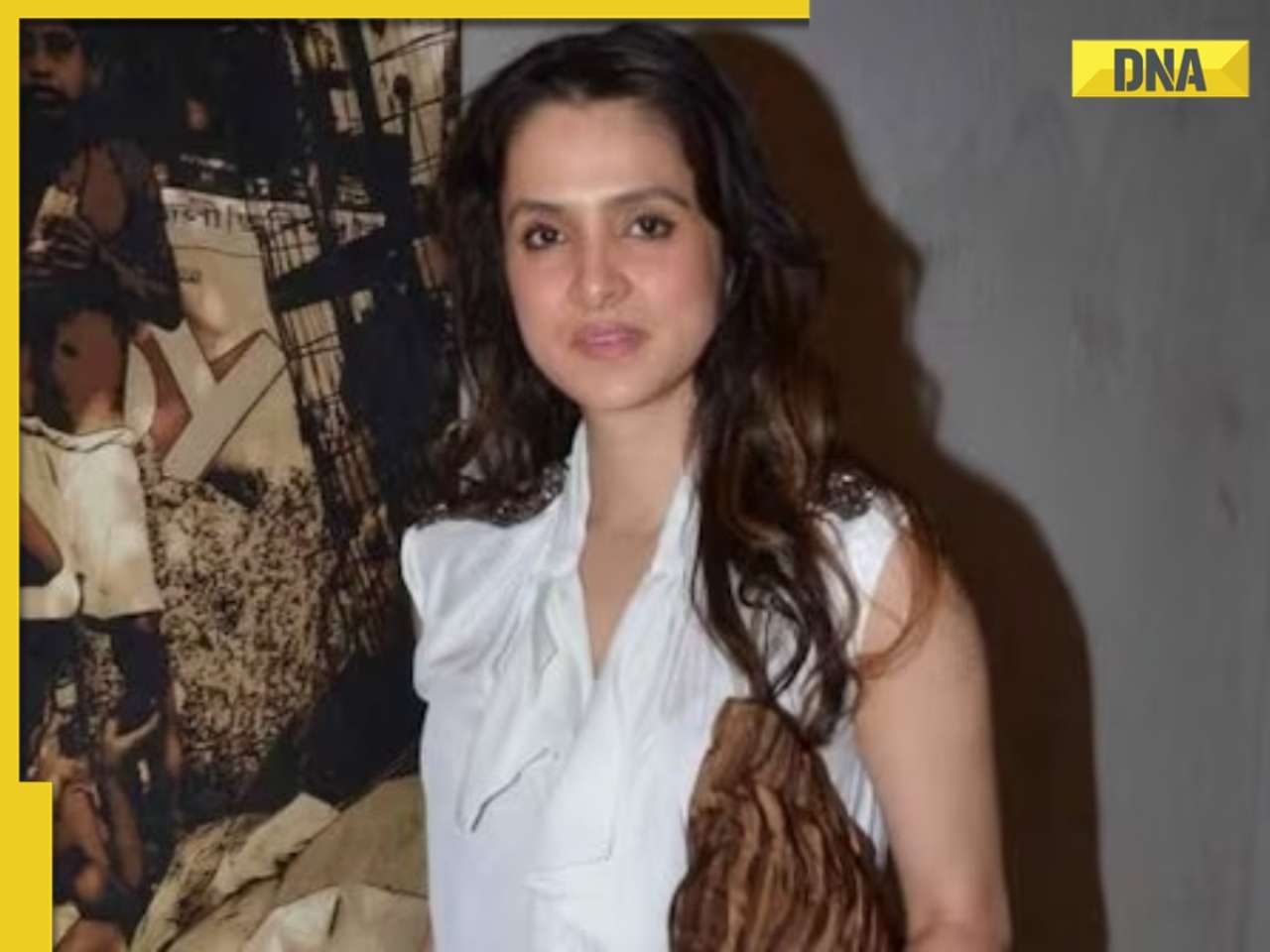
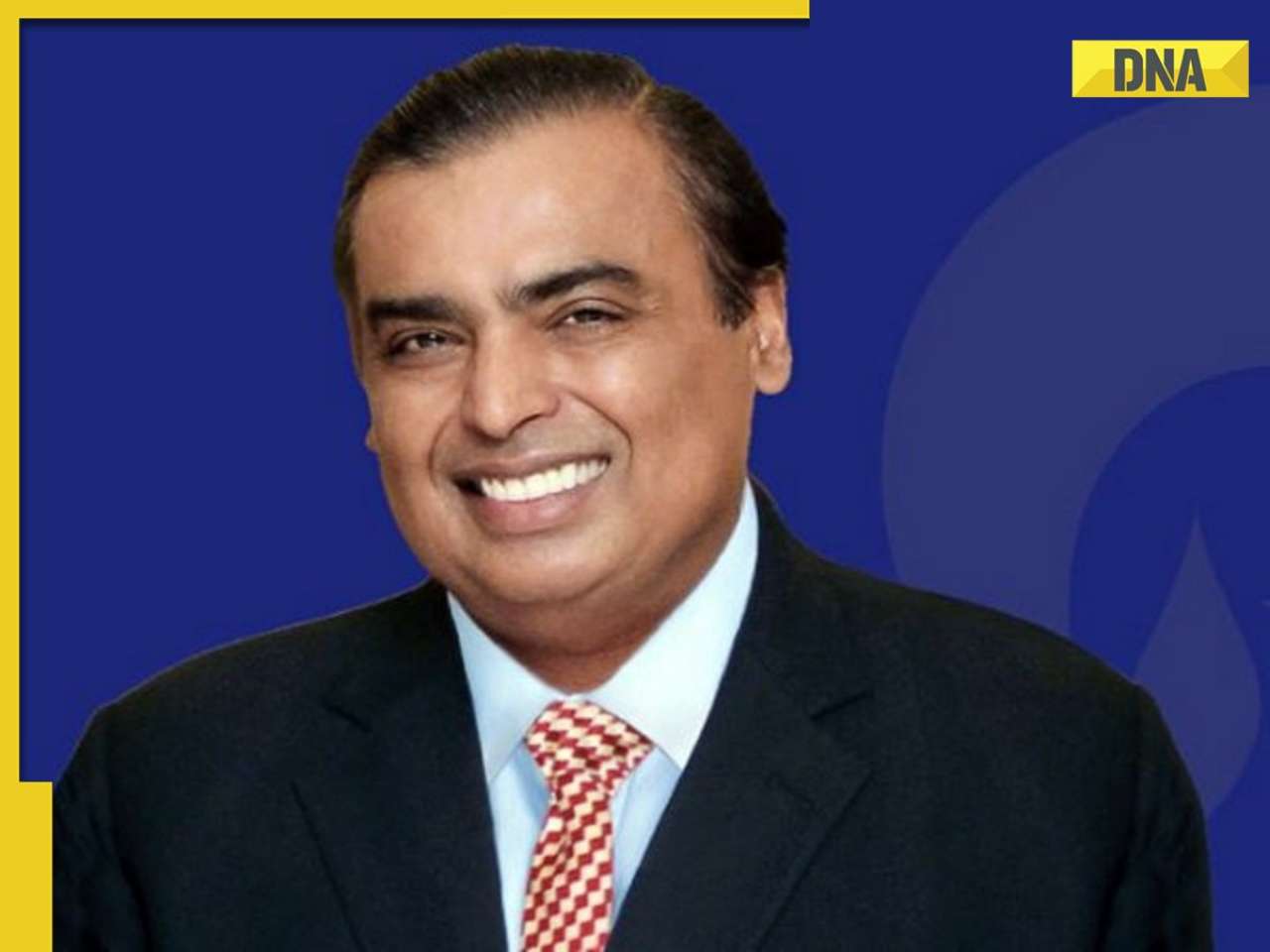
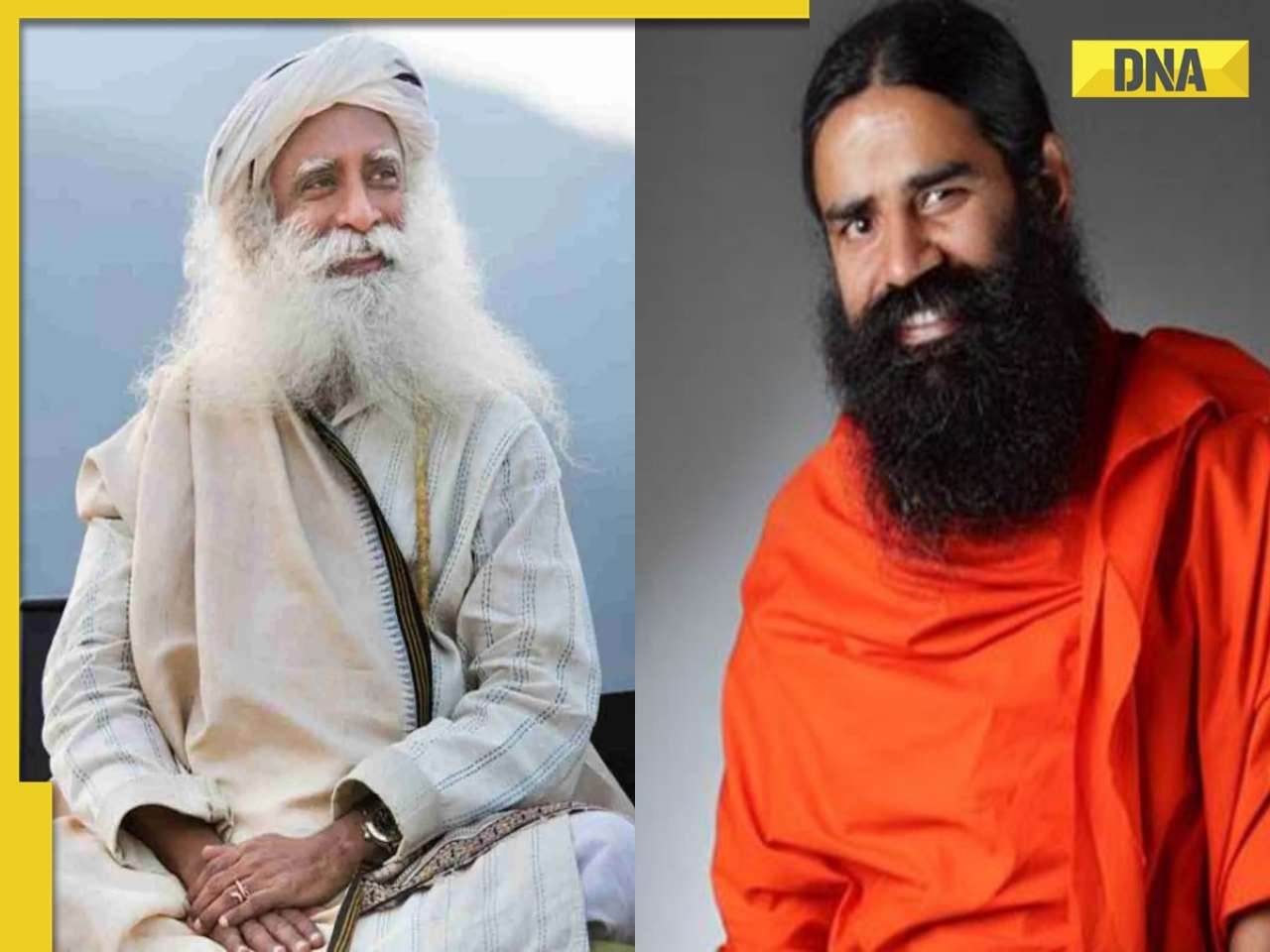
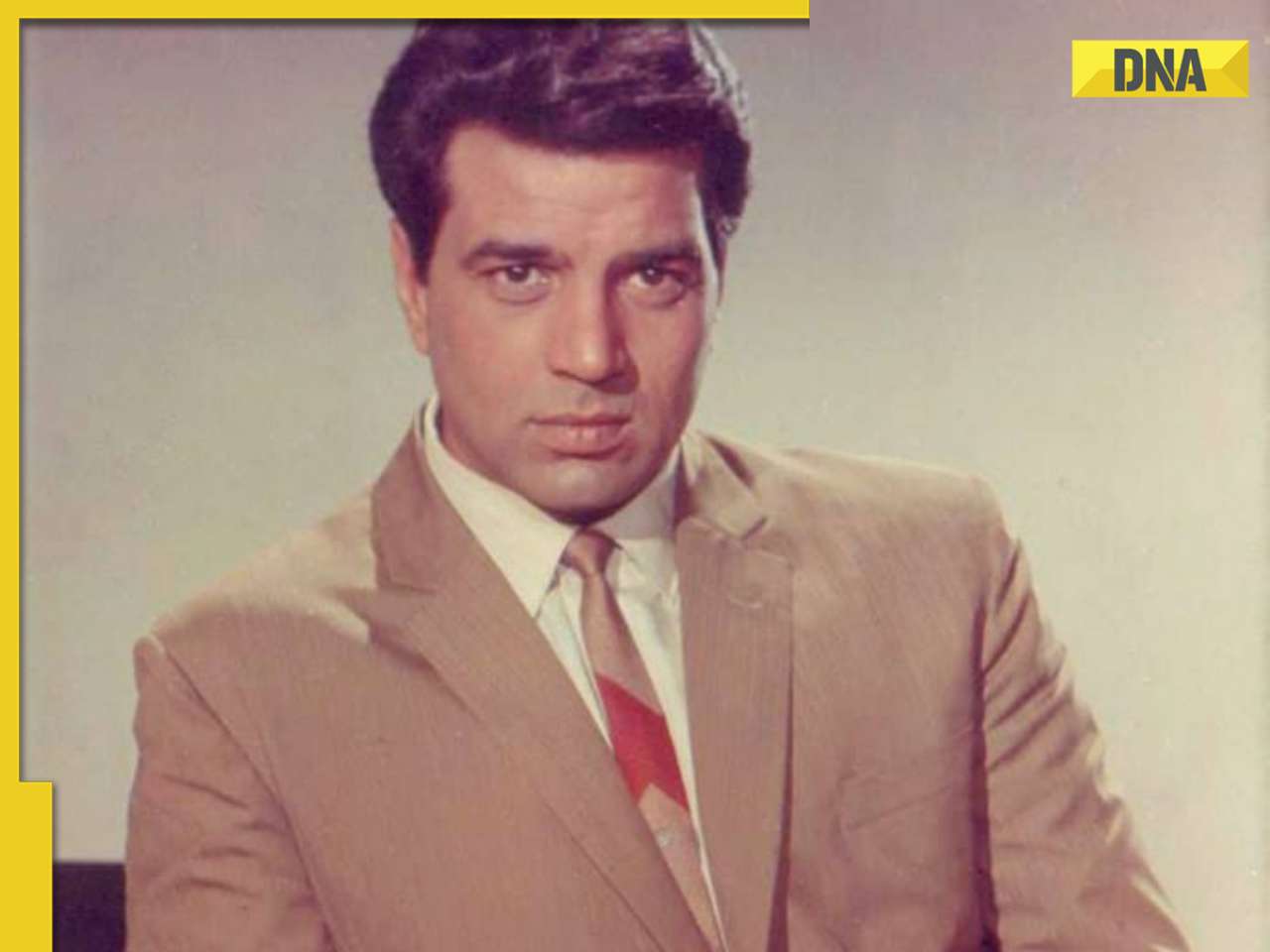
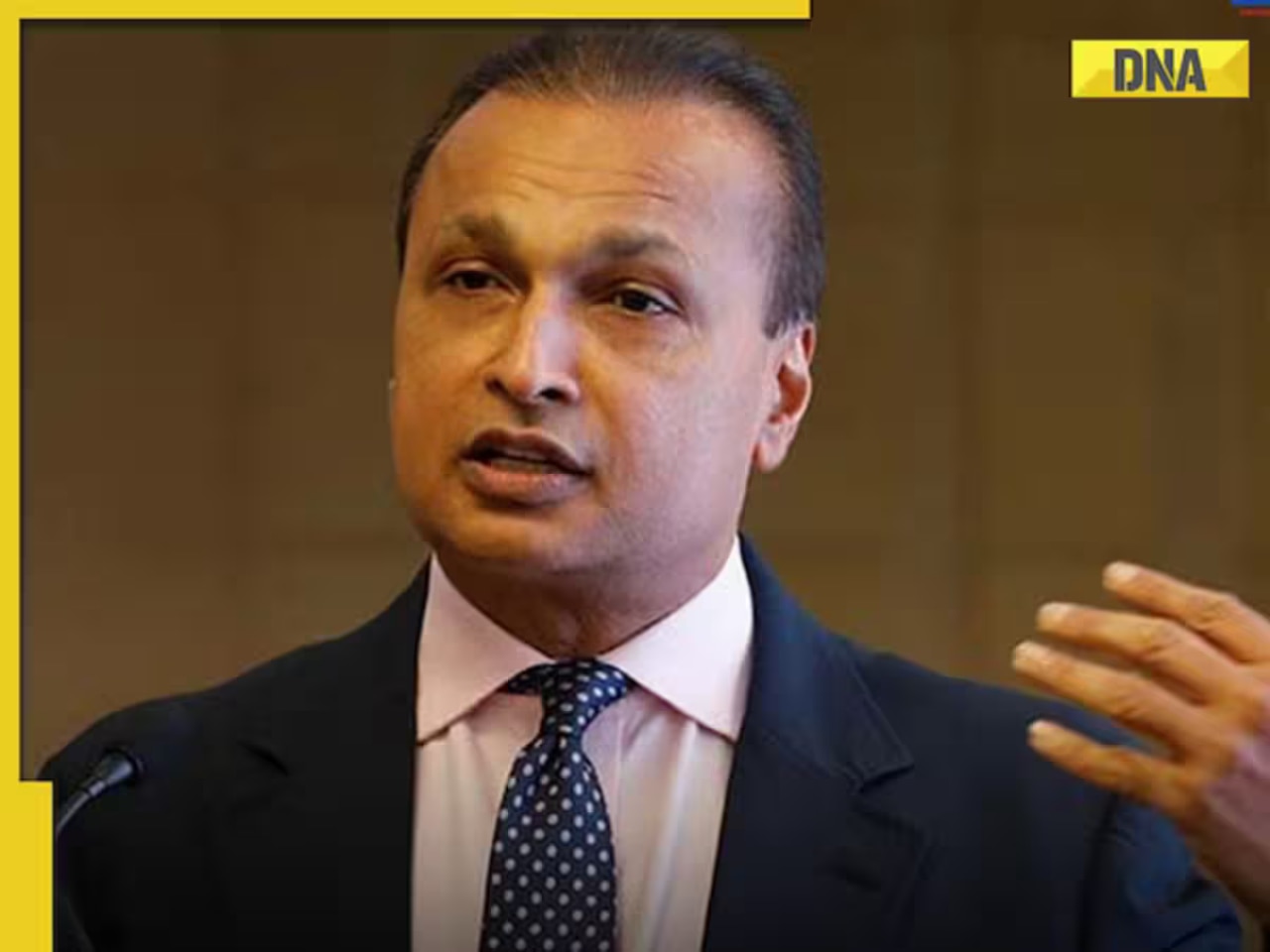
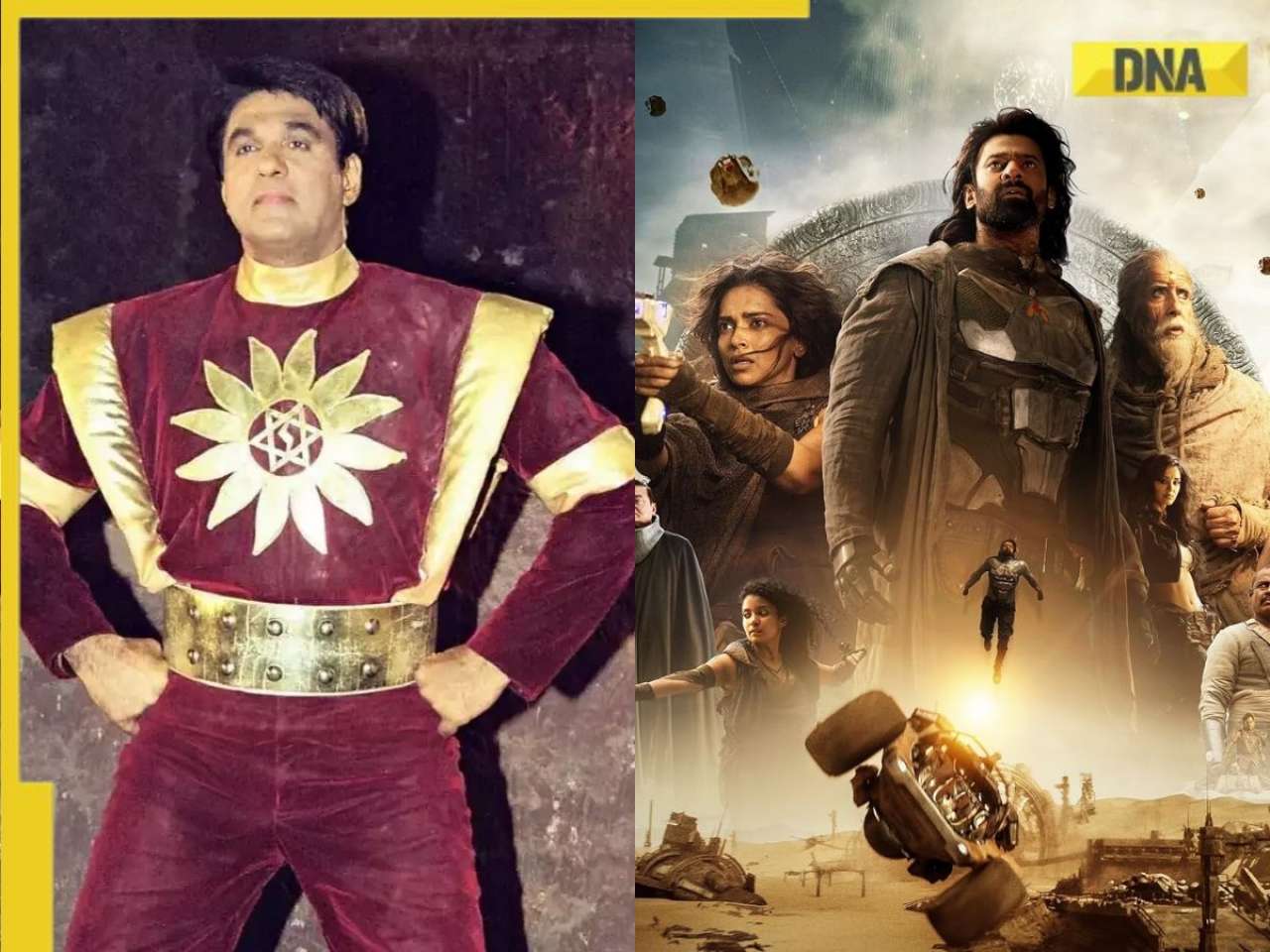
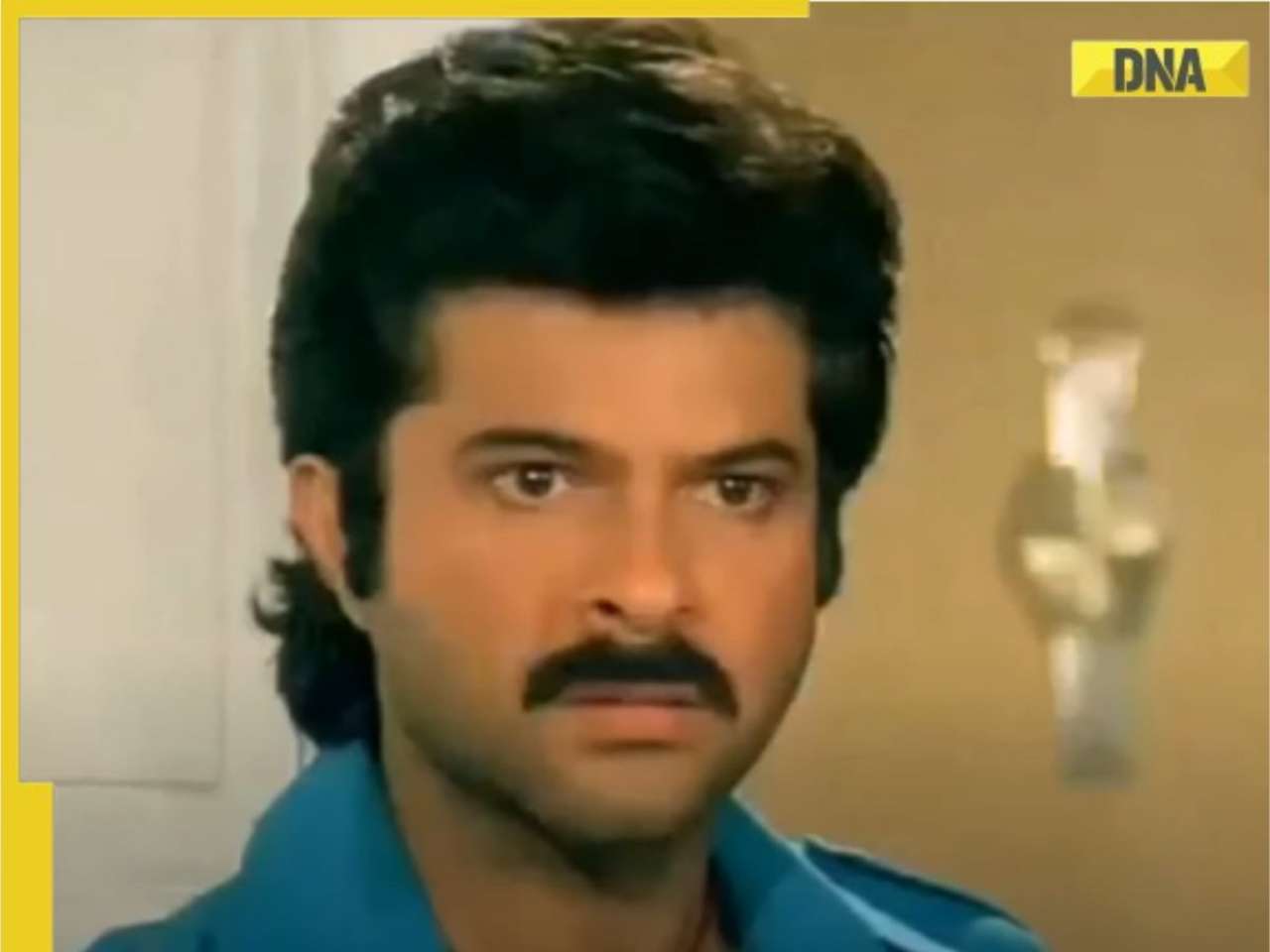




)
)
)
)
)
)